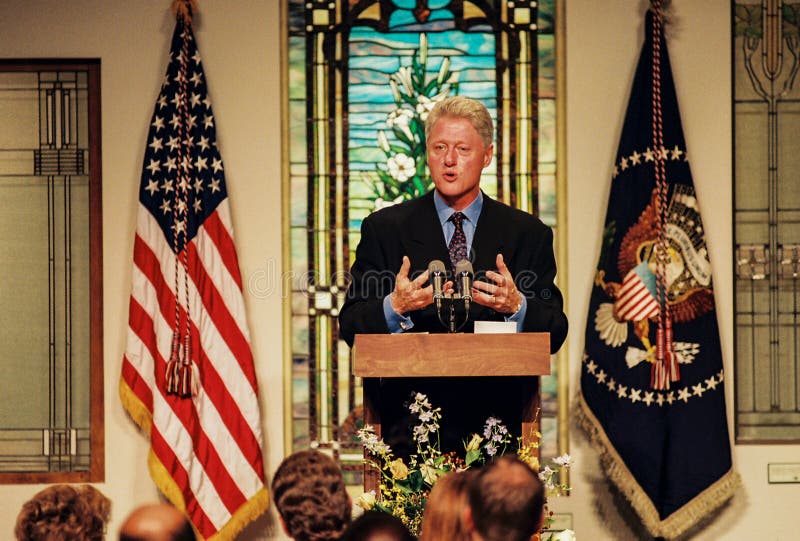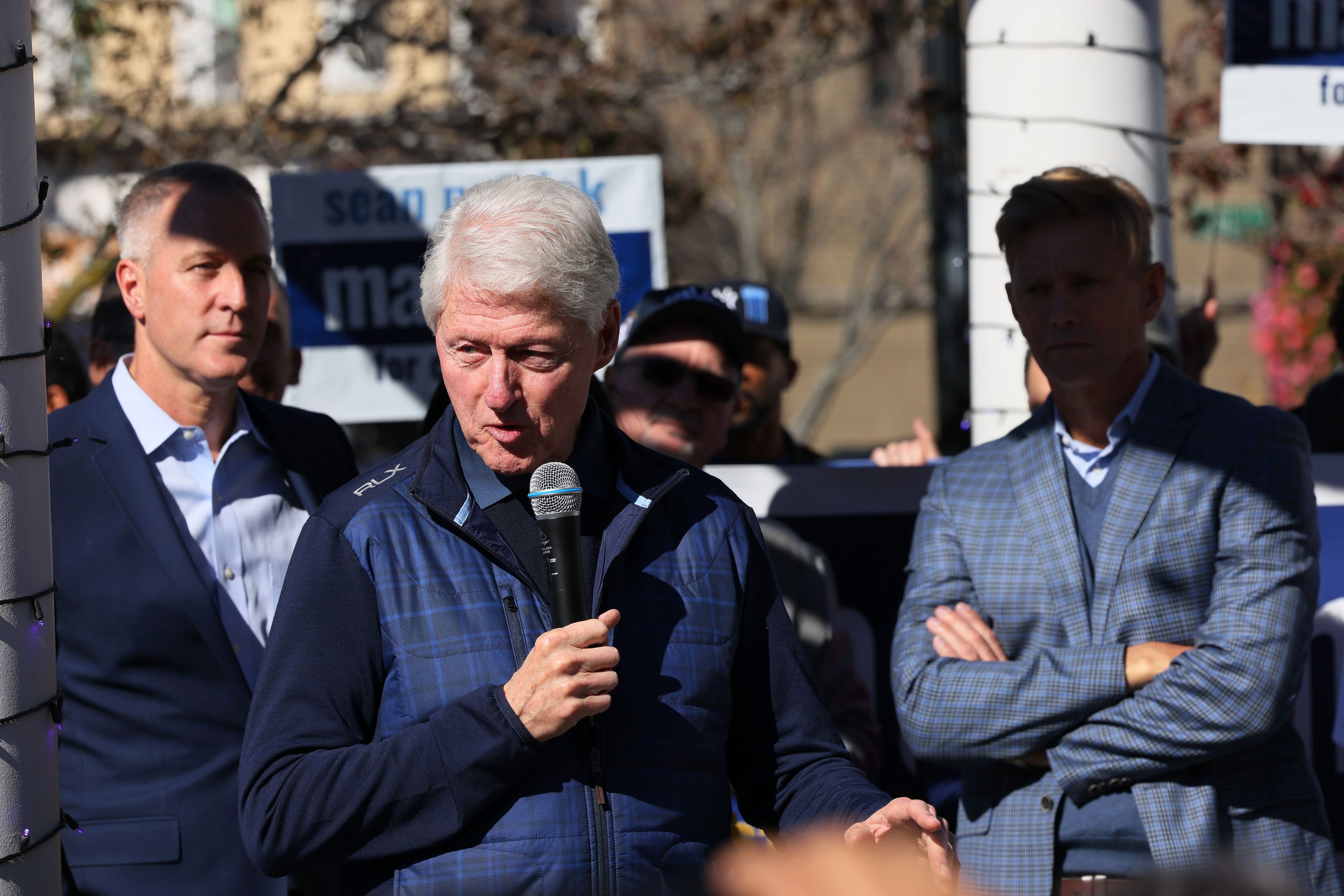Bill Clinton: A Legacy of Prosperity and Controversy
Bill Clinton, the 42nd President of the United States, assumed office in 1993 amidst high expectations and a fervent desire for change. His presidency, spanning two terms from 1993 to 2001, witnessed a combination of remarkable achievements and tumultuous controversies, leaving a lasting impact on American politics and society.
Early Life and Political Career
Born on August 19, 1946, in Hope, Arkansas, Bill Clinton emerged from humble beginnings to become one of the most influential figures in modern American politics. A graduate of Georgetown University and Yale Law School, Clinton demonstrated early promise as a gifted orator and political strategist. His tenure as governor of Arkansas from 1979 to 1981 and again from 1983 to 1992 showcased his pragmatic approach to governance and his ability to bridge partisan divides.
Clinton's ascent to the presidency in 1992, as the Democratic nominee, marked a turning point in American politics. His message of "hope" and "change," embodied in the slogan "It's the economy, stupid," resonated with voters disillusioned by years of Republican rule and economic stagnation. Clinton's victory over incumbent President George H. W. Bush heralded a new era of Democratic leadership in Washington.
Economic Prosperity and Policy Achievements
One of the hallmark achievements of Bill Clinton's presidency was the robust economic growth and prosperity that characterized much of the 1990s. Under his stewardship, the United States experienced the longest economic expansion in its history, with low unemployment, rising wages, and budget surpluses. Clinton's economic policies, including deficit reduction measures and investments in education and technology, contributed to this period of unprecedented prosperity.
The passage of the North American Free Trade Agreement (NAFTA) in 1994 and the establishment of normal trade relations with China in 2000 reflected Clinton's commitment to expanding international trade and promoting economic globalization. While these policies generated controversy and criticism from labor unions and environmentalists, they also opened new markets for American goods and bolstered economic growth.
Welfare Reform and Domestic Agenda
In 1996, Bill Clinton signed into law the Personal Responsibility and Work Opportunity Reconciliation Act, commonly known as welfare reform. The legislation represented a significant departure from traditional welfare policies by imposing work requirements and time limits on cash assistance programs. While hailed as a bipartisan achievement that promoted self-sufficiency and reduced welfare dependency, critics argued that it exacerbated poverty and hardship for vulnerable populations.
Clinton's domestic agenda also included initiatives to expand access to healthcare, promote racial reconciliation, and address the challenges of crime and gun violence. The passage of the Violent Crime Control and Law Enforcement Act in 1994, though controversial for its tough-on-crime provisions, contributed to a decline in crime rates nationwide. Additionally, Clinton's efforts to advance racial equality, including his advocacy for affirmative action and support for the appointment of diverse judicial nominees, earned him praise from civil rights leaders.
Foreign Policy and Global Engagement
Bill Clinton's foreign policy agenda was shaped by a combination of pragmatism and idealism, as he sought to navigate the complexities of post-Cold War geopolitics. His administration prioritized diplomatic engagement and multilateral cooperation, while also confronting emerging security threats and humanitarian crises.
In the Balkans, Clinton faced the challenge of addressing ethnic conflict and genocide in Bosnia and Kosovo. His decision to intervene militarily, first in Bosnia in 1995 and later in Kosovo in 1999, reflected a commitment to upholding human rights and preventing mass atrocities. While the interventions were controversial and faced criticism for their execution and strategic objectives, they ultimately contributed to the restoration of stability and peace in the region.
Clinton's efforts to broker peace in the Middle East, particularly between Israel and the Palestinians, yielded mixed results. The Oslo Accords of 1993, which laid the groundwork for a comprehensive peace agreement, represented a historic breakthrough in the Israeli-Palestinian conflict. However, subsequent negotiations faltered, and the elusive goal of a final peace settlement remained elusive throughout Clinton's presidency.
Controversies and Impeachment
Despite his many accomplishments, Bill Clinton's presidency was marred by personal and political controversies that threatened to overshadow his legacy. The most notorious of these was the Monica Lewinsky scandal, which erupted in 1998 and culminated in Clinton's impeachment by the House of Representatives on charges of perjury and obstruction of justice.
The impeachment trial, held in the Senate in early 1999, captivated the nation and exposed deep divisions along partisan lines. While Clinton was ultimately acquitted and remained in office, the scandal tarnished his reputation and overshadowed much of his second term. Critics accused him of moral turpitude and hypocrisy, while supporters argued that the impeachment proceedings were politically motivated and an overreach of congressional authority.
Legacy and Historical Assessment
As Bill Clinton's presidency drew to a close in January 2001, the nation grappled with the complexities of his legacy and the enduring impact of his leadership. While his administration achieved significant policy successes, including economic prosperity, welfare reform, and diplomatic breakthroughs, it also faced setbacks and controversies that left a mark on the national consciousness.
In the years since leaving office, Clinton has remained an influential figure in American public life, advocating for global health initiatives, disaster relief efforts, and economic development projects through the Clinton Foundation. Despite his personal flaws and political missteps, his presidency continues to be studied and debated by scholars and historians, reflecting the enduring significance of his tenure in shaping the trajectory of the nation.
Conclusion
Bill Clinton's presidency was a study in contrasts, marked by triumphs and tribulations, prosperity and scandal. From economic prosperity and welfare reform to foreign policy challenges and personal controversies, his tenure in the White House embodied the complexities of leadership and the enduring quest for progress and prosperity.
As America looks back on the Clinton years, it confronts a legacy that defies easy categorization, shaped by the confluence of historical forces and individual decisions that defined an era. While the controversies of his presidency may linger in the public memory, so too do the enduring achievements and contributions of a leader who left an indelible mark on the American political landscape.



































